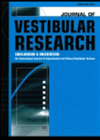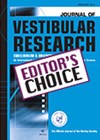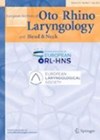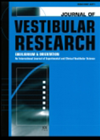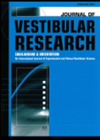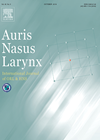
Journal Reviews
Cognitive function is preserved in episodic vestibular disorders
Cognitive deficit in bilateral vestibular failure in particular, but also in unilateral vestibular failure, is well documented. The authors designed this prospective study to determine if deficits in cognition, as well as anxiety and depression, were present in episodic vestibular...
Obstructive sleep apnoea in common vestibular disorders
The importance of getting a good night’s sleep is often acknowledged but may be particularly difficult to achieve for those with obstructive sleep apnoea (OSA). In addition to high blood pressure, increased risk of stroke and depression, balance problems may...
Patients with auto-immune Meniere’s disease more likely to respond to intratympanic steroids
The authors retrospectively reviewed the duration of symptom control after intratympanic dexamethasone (IT) injections in 27 patients with Meniere’s disease (MD) over a six-year period. The patients received two IT injections of 3.3mg/ml of dexamethasone one-to-two weeks apart. Eleven patients...
Unravelling the Meniere’s vs. migraine conundrum – what does the mastoid contribute?
This is an interesting observational study that attempts to classify subtypes of Meniere’s disease (MD) in relation to the coexistence of migraine. It is well known that the two conditions share common characteristics, making diagnosis and treatment challenging at times....
Canal plugging for intractable Meniere’s disease
In this single centre retrospective study, the authors applied semicircular canal plugging, well known as a treatment for refractory BPPV, to intractable unilateral Meniere’s disease (MD) that had failed to respond to medical treatment with betahistine and hydrochlorothiazide. However, in...
Does the season affect the diagnosis of vestibular disorders?
There are mixed results in the literature regarding seasonal variation in the presentation of various peripheral vestibular disorders. In this large population study involving over 20,000 patients recruited from 116 ENT practices across Germany, the authors analysed the demographic characteristics...
MRI in diagnosis Meniere’s disease: what is the evidence?
The utility of magnetic resonance imaging (MRI) in the diagnosis of Meniere’s disease (MD) has attracted a lot of interest recently. It is well accepted that the saccule is the most common vestibular organ affected by endolymphatic hydrops (EH) and...
Clinical features of BPPV in Meniere’s disease
It is an observation that BPPV appears to be commonly associated with Meniere’s disease (MD). This five-year study compared features and treatment outcomes between patients presenting with MD in conjunction with unilateral BPPV and a group of BPPV patients without...
Review of surgical treatments of intractable Meniere’s disease
This is a nice summary of the evidence available for the surgical treatments for intractable Meniere’s disease. To summarise, in five-10 years, over 90% of vestibular neurectomy cases, more than 80% of intratympanic gentamycin treatment, and 70-80% of endolymphatic sac...

